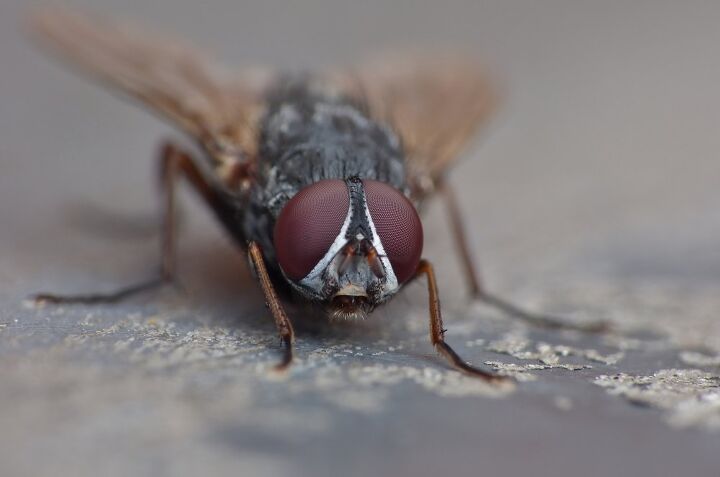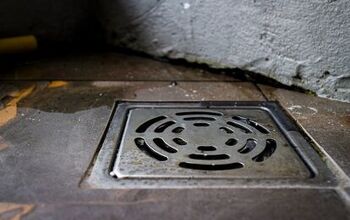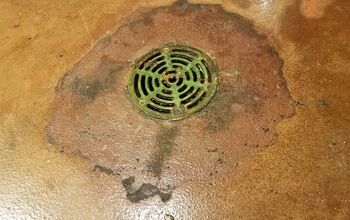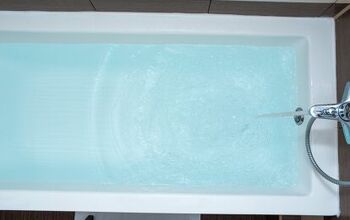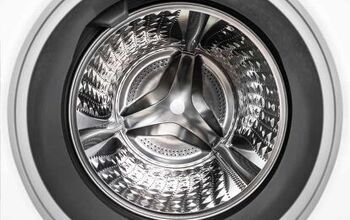Why Are There Flies In My Basement? (Find Out Now!)

A fly infestation in your basement can start out as a nuisance but quickly become a health hazard. If there are flies in your basement, it’s essential to figure out where they’re coming from. Depending on the source, you may have to use different tactics to eliminate the fly infestation.
Common causes of flies in the basement are animal carcasses, trash, stagnant water and organic material, and other infestations. To get rid of flies, first determine the source, then seal entrances, eliminate the bait, and use traps or insecticides. For flies in your sump pit, drain the standing water, clean the basin, and use an insect growth inhibitor.
Do You Need Pest Control Services?
Get free, zero-commitment quotes from pro contractors near you.

Causes Of Flies In The Basement
Flies are definitely an annoyance, but they can also become a major issue if left to their own devices. If you have flies in your basement, they’re probably caused by one of the following factors.
Animal Carcasses
Certain types of flies, like bluebottles, green bottles, and blowflies, search for dead and decaying animals. They use them for both food and breeding purposes.
If you have a fly infestation in your basement, it’s possible an animal crawled into your home and died. Check for carcasses between pipes and behind drywall.
If animal carcasses are the cause of the flies in your basement, it’s important to figure that out as soon as possible. These types of flies can present health risks.
Trash
A common cause of flies in the basement is homeowners storing their trash there before collection. In this case, homeowners typically bring the flies down into the basement with the garbage. This is especially true with trash that was previously outdoors.
Often, gnats and small flies make their way into trash bags and lay their eggs near old food or rotting meat. The larvae hatch within just a few days and begin eating the decaying food in the trash bag. Once they reach maturity, they leave the trash bag and enter your basement.
You can easily solve this issue by storing your trash outside. Another option is to use trash containers with a sealed top.
Stagnant Water Or Organic Material
Another cause of flies in your basement could be your sump pit. Sump pits are prone to accumulating stagnant water and organic material. This is especially likely if the pit isn’t frequently flushed.
The standing water and moist organic matter in the sump pit serve as a nursery for flies, gnats, and other insects. You can keep water and organic matter from building up by regularly flushing, pumping, and cleaning out your sump pit.
Other Infestations
Houseflies and other common flies lay their eggs in manure. If you’ve noticed a fly infestation, there’s a chance you have another infestation going on, such as mice or rats.
Check to see if there are any animal droppings in your basement. Mice and rat droppings, along with other animal feces, can be the perfect place for flies to breed.
How To Get Rid Of Flies In The Basement
Now that you know why there are flies in your basement, it’s time to get rid of them!
Step 1: Identify The Source
The first thing you need to do is figure out where the flies are coming from. Depending on where the flies originate, you may need to handle them in a slightly different manner. If the flies are in the sump pump, skip to the next section, “How To Handle A Drain Fly Infestation.” Otherwise, continue moving through the steps below to eliminate the fly infestation in your basement.
Step 2: Seal The Entrance
Next, it’s time to take action and seal the entrance where the flies are getting inside. You might need to seal cracks or gaps in your house’s foundation. Also, be sure to check the areas around doorways and windows to see whether flies could be getting in there.
Step 3: Eliminate The Bait
Which of the four causes identified earlier in the article is bringing flies into your basement? Whether it’s animal carcasses, trash, stagnant water, or other infestations that are acting as bait, the cause must be eliminated.
Remove any animal carcasses, store trash outdoors or in sealed containers, and drain and clean your sump pit. If another infestation is the root of the issue, you may need to contact a pest control specialist.
Step 4: Use Light
One way to get flies out of your basement is to use light. On a bright and sunny day, open one door or window. Make the rest of the basement as dark as possible. Flies and other insects are attracted to light. Therefore, they should leave your basement through the open door or window.
Step 5: Employ Traditional Methods
You can also use traditional solutions like flyswatters and flypaper to kill the flies in your basement. Another option is to vacuum the flies, making sure to dispose of the bag outside of your house afterward. This way, the flies won’t make their way back into your home.
Step 6: Create Natural Traps
Another option is to create homemade fly traps for your basement. All you need is a bowl, plastic wrap, and bait. This could be fruit or apple cider vinegar.
Put the bait in the bowl and cover it with plastic wrap. Then, poke a few small holes into the plastic wrap. This allows the flies to get into the trap, but it’s much more difficult for them to find their way out.
Step 7: Utilize Houseplants Or Essential Oils
Several house plants repel flies, thanks to their scent. A few of these include mint, lavender, and basil. You could grow these houseplants in your basement as long as there’s a window for them to receive sunlight.
A similar option is to use essential oils like lavender and eucalyptus oil to repel flies. You can put the oils in a spray bottle with water and mist the windows. You’ll also want to spray areas around the doors and other places where flies might come in.
Step 8: Spray Insecticides
An insecticide is always an option when you want to eliminate flies in your basement. Products that contain the ingredient permethrin are typically the most effective.
Many sprays are created for outdoor use, so keep an eye out for products that are intended for indoor use. They’ll usually have the words “safe” and “non-toxic” in the product name.
How To Handle A Drain Fly Infestation
For drain flies in your sump pit, the method of elimination is slightly different.
Step 1: Drain Standing Water
Start by triggering the pump to drain the standing water in the sump pit. Stagnant water and moisture, in general, attract flies.
Step 2: Clean The Basin
Use a stiff brush to remove all of the build-up inside the basin. This build-up of organic matter often acts as a breeding ground for flies.
Step 3: Use An Insect Growth Inhibitor
Environmental regulations are in place to keep people from pouring insecticides into their sump pits. However, you can use insect growth inhibitors to eliminate the flies’ ability to breed. While this won’t kill the flies, they will eventually die off without reproducing.
Step 4: Keep Up With Maintenance And Repairs
Be sure to keep up with regular maintenance of your sump pit to keep more flies from coming in. Problems like a broken pump can cause stagnant water to build up and attract flies.
Do You Need Pest Control Services?
Get free, zero-commitment quotes from pro contractors near you.

Related Questions
What attracts flies in the basement?
Flies are often attracted to stagnant pools of water, like the kind that can collect in sump pits. Dead and decaying animal carcasses also attract flies. Trash build-up in the basement can be the cause of a fly infestation as well.
Are bugs in the basement normal?
Bugs love environments that are dark and damp. This makes most basements a perfect place for bugs to live. Even if you don’t see bugs in your basement, they’re probably there.
Why do basements get bugs?
Often, basements allow for moisture to build up. This makes them an ideal environment for bugs to thrive. Plus, basements are often messy and disorganized, so they’re great hiding places and breeding grounds for various pests.

With a lifelong passion for writing plus strong enthusiasm for home improvement and DIY projects, joining the team at Upgraded Home was an easy choice. Jessica Allen likes to share helpful information with current and aspiring homeowners. Aside from writing, Jessica loves doing yoga, playing the piano, and dabbling in graphic design.
More by Jessica Allen



